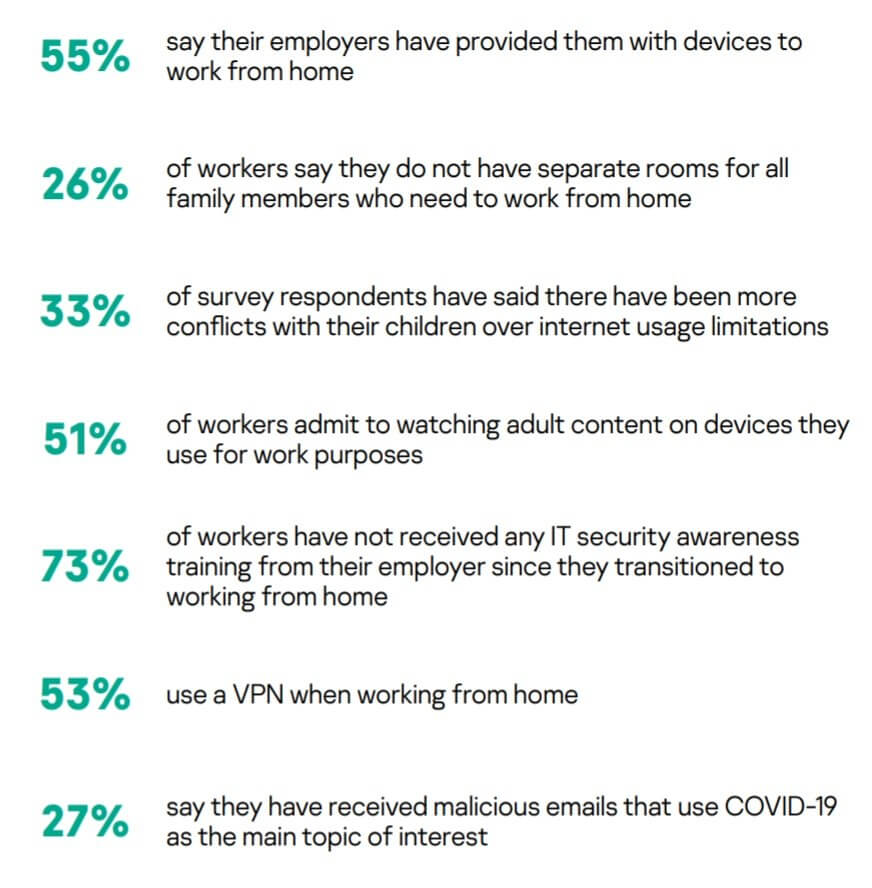In a nutshell: If you're one of the people who've found themselves suddenly working from home, you might have given into the temptation of accessing "inappropriate" content on devices used for business. Don't worry, though: you're not alone.
According to a new report from security giant Kaspersky, 51 percent of remote workers admit to watching content considered inappropriate on devices used for work-related purposes. The report describes this as "adult content," so we can guess what that means.
Porn sites are notorious for being packed with malware, which could make businesses more susceptible to threats, especially when 55 percent of workers are using devices provided by their employers.
They might seem obvious to readers of this site, but many people are unfamiliar with basic security precautions when it comes to remote work. Furthermore, 73 percent of workers have not received IT security awareness training from their employer since transitioning to working from home.

The lack of awareness means 42 percent of remote workers surveyed use their personal emails for work, and 49 percent said this activity had increased since the lockdown began. Thirty-eight percent of participants revealed they use personal messenger services not approved by company IT departments to communicate with colleagues, and 60 percent said they do this more regularly now they're working from home.
Kaspersky's report shows that people are consuming more online news during the pandemic, and 60 percent are using work devices for this purpose. It may seem innocuous enough, but, like porn, accessing less-reputable sites can pose a security risk.
"Organizations cannot just fulfill all user requests, such as allowing staff to use any services as they want to. It is necessary to find a balance between user convenience, business necessity and security. To achieve this, a company should provide access to services based on the principle of only supplying minimal, necessary privileges, implement a VPN and use secure and approved corporate systems," said Andrey Evdokimov, chief information security officer at Kaspersky "These types of software may have certain restrictions that slightly reduce usability, but offer greater assurances in providing security measures."
